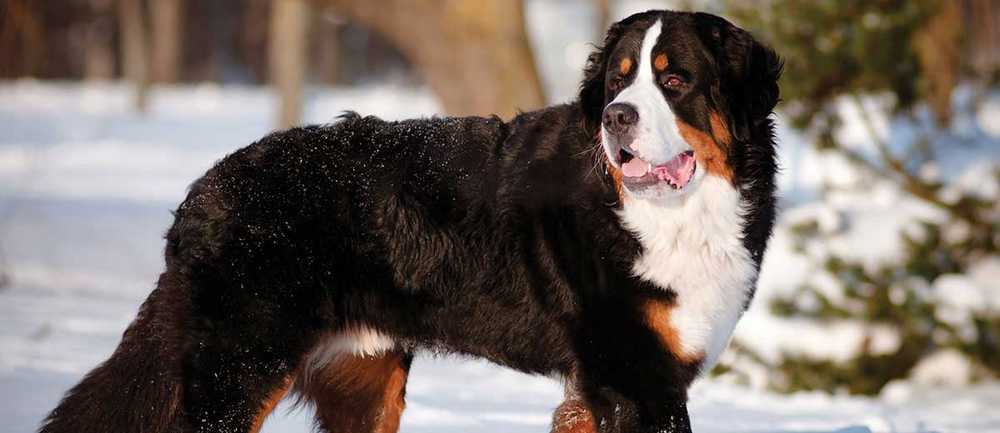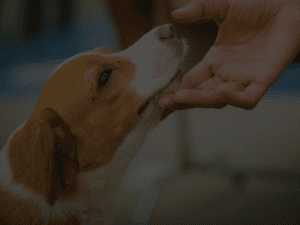
Adopting a dog is a significant decision and a life-changing experience. If you’re considering adding a furry companion to your family, you might be intrigued by the idea of adopting a Bernese Mountain Dog. These gentle giants are known for their loving nature, striking appearance, and affectionate disposition. In this comprehensive guide, we will explore everything you need to know about Bernese Mountain Dog adoption. From understanding the breed’s characteristics and history to finding the right rescue organization or breeder, we’ll help you navigate the process to ensure a successful and fulfilling adoption journey.
I. The Bernese Mountain Dog: A Brief Overview
Before delving into the intricacies of Bernese Mountain Dog adoption, it’s crucial to have a fundamental understanding of the breed. Bernese Mountain Dogs, often referred to as “Berner,” are a large and affectionate breed known for their striking tri-color coats and gentle personalities.
A. Historical Background
The Bernese Mountain Dog hails from Switzerland and is one of the four Swiss Mountain Dog breeds. These dogs have a rich history dating back to the Roman times when they were used as working dogs in the Swiss Alps. They were primarily employed as farm dogs, pulling carts, guarding livestock, and offering companionship to the farmers. Their history is deeply intertwined with their role as hardworking, loyal companions.
B. Physical Characteristics
Bernese Mountain Dogs are easily recognizable due to their distinctive appearance. They are a large breed with a strong, muscular build. The following are some key physical characteristics of Berners:
- Coat: One of the most iconic features of Bernese Mountain Dogs is their tri-colored coat. It typically consists of a black base with rust and white markings. Their thick, double coat helps them tolerate cold weather.
- Size: Berners are considered a large breed, with males standing 25 to 27.5 inches at the shoulder and females slightly smaller, standing 23 to 26 inches. They typically weigh between 70 and 115 pounds.
- Face: Their expressive, kind eyes and black nose add to their charming appearance. Berners have a strong, square-shaped head with floppy ears.
C. Temperament
Bernese Mountain Dogs are known for their friendly and affectionate nature. They are loyal and deeply attached to their families, making them excellent companions for those looking for a loving and devoted pet. Some key characteristics of their temperament include:
- Gentle: Berners are gentle giants, known for their patience and tolerance, especially with children and other pets.
- Friendly: They tend to be outgoing and social, making them great family dogs. They are generally good with strangers but make excellent watchdogs due to their protective instincts.
- Intelligent: Bernese Mountain Dogs are intelligent and eager to please, which makes them relatively easy to train. However, their strong-willed nature may require a consistent and patient approach to training.
- Affectionate: These dogs thrive on human companionship and are affectionate towards their families. They often seek cuddles and attention, forming strong bonds with their owners.
Now that we’ve got a good grasp of the Bernese Mountain Dog’s background, characteristics, and temperament, let’s delve into the world of Bernese Mountain Dog adoption.
II. Bernese Mountain Dog Adoption Options
When it comes to adopting a Bernese Mountain Dog, there are various options to consider. Each has its pros and cons, and the choice ultimately depends on your preferences, lifestyle, and priorities.
A. Adoption from Rescue Organizations
Adopting a Bernese Mountain Dog from a rescue organization can be a rewarding experience, as you’re providing a loving home to a dog in need. These dogs might have been abandoned, surrendered, or rescued from difficult situations. Here’s what you need to know about adopting from rescue organizations:
- Advantages:a. Saving Lives: By adopting from a rescue organization, you’re giving a second chance to a dog in need and potentially saving a life.b. Cost-Efficient: The adoption fees at rescue organizations are often lower than purchasing from a breeder. These fees typically cover the dog’s initial medical expenses, such as vaccinations and spaying/neutering.c. Adult Dogs: Rescue organizations often have adult Bernese Mountain Dogs available for adoption, which can be ideal for those who prefer a more mature and settled dog.
- Considerations:a. Limited Puppies: If you’re specifically looking for a Bernese Mountain Dog puppy, rescue organizations may have fewer options in this regard.b. Health History: While rescue organizations generally provide health information about their dogs, the complete medical history may not be available.c. Behavioral Issues: Some rescue dogs may have behavioral challenges due to their past experiences. However, many of these issues can be addressed with time, patience, and training.
B. Bernese Mountain Dog Breeders
If you’re interested in adopting a Bernese Mountain Dog puppy, you may consider working with a reputable breeder. It’s essential to choose a breeder with a strong ethical foundation and a commitment to the well-being of their dogs. Here are the key points to keep in mind when working with a breeder:
- Advantages:a. Puppy Selection: Breeders offer a variety of puppies for adoption, allowing you to choose one that suits your preferences in terms of age, gender, and temperament.b. Health Guarantees: Reputable breeders provide health guarantees for their puppies, ensuring they are free from hereditary diseases and genetic issues.c. Knowledgeable Guidance: Breeders often have a wealth of knowledge about the breed and can offer valuable insights and advice on raising a Bernese Mountain Dog.
- Considerations:a. Cost: Purchasing a Bernese Mountain Dog puppy from a breeder can be more expensive compared to adopting from a rescue organization.b. Responsibly Sourced Breeders: It’s crucial to research and choose a breeder who practices responsible breeding, focusing on the health and well-being of the dogs rather than solely on profit.c. Waiting List: Bernese Mountain Dog puppies from reputable breeders are often in high demand, and you may need to join a waiting list.
C. Shelters and Animal Control Facilities
In addition to dedicated Bernese Mountain Dog rescue organizations, you can also check local animal shelters and animal control facilities for available dogs. These institutions may occasionally have Bernese Mountain Dogs in need of homes, although they may be less common compared to other breeds.
- Advantages:a. Saving Lives: Similar to rescue organizations, adopting from shelters and animal control facilities gives a second chance to dogs in need.b. Cost: The adoption fees at shelters are generally reasonable and often include vaccinations and spaying/neutering.
- Considerations:a. Limited Availability: Finding a Bernese Mountain Dog at a local shelter can be challenging, as they are not as common as some other breeds.b. Health and Behavioral History: The available information about a shelter dog’s medical and behavioral history may be limited.
III. Preparing for Bernese Mountain Dog Adoption
Once you’ve decided on the source of your Bernese Mountain Dog, it’s time to start preparing for the adoption process. Regardless of whether you’re adopting from a rescue organization, breeder, or shelter, certain essential steps apply.
A. Home Evaluation
Before bringing a Bernese Mountain Dog into your home, it’s vital to assess whether your living space is suitable for a large breed like the Berner. Here are some considerations:
- Space: Bernese Mountain Dogs require ample space to move around comfortably, so ensure your home has enough room.
- Yard: A secure and spacious yard is ideal, as Berners enjoy outdoor activities. Fencing should be sturdy and high enough to contain them.
- Lifestyle: Consider your lifestyle and whether you have the time and energy to meet the exercise and grooming needs of a Bernese Mountain Dog.
- Other Pets: If you have other pets, evaluate how they might interact with a new dog in the house.
B. Research the Breed
Taking the time to thoroughly research the Bernese Mountain Dog breed is crucial. Understanding their characteristics, needs, and potential challenges will help you provide the best care for your future companion. Research should include:
- Exercise Requirements: Berners need regular exercise to maintain their health and prevent obesity.
- Grooming: Their thick double coat requires frequent brushing and occasional professional grooming.
- Health Considerations: Familiarize yourself with common health issues in the breed, such as hip and elbow dysplasia and certain cancers.
- Training: Bernese Mountain Dogs are intelligent but can be stubborn. Learning about positive reinforcement training methods will be beneficial.
C. Financial Planning
Owning a dog, especially a large breed like the Bernese Mountain Dog, comes with financial responsibilities. It’s important to budget for:
- Adoption Fees: Whether you’re adopting or purchasing from a breeder, there will be associated costs.
- Veterinary Care: Regular check-ups, vaccinations, and potential medical emergencies should be budgeted for.
- Food and Supplies: High-quality dog food, grooming tools, toys, and other supplies will be necessary.
- Training: Consider the cost of training classes or professional trainers if needed.
- Emergency Fund: It’s wise to have an emergency fund in case unexpected medical expenses arise.
D. Family Agreement
If you have a family, it’s essential to ensure that everyone is on the same page regarding the adoption. Discuss responsibilities, including feeding, exercise, grooming, and training. It’s also important to establish rules and boundaries for the dog within the household.
IV. The Bernese Mountain Dog Adoption Process
Now that you’ve done your homework and made the necessary preparations, it’s time to embark on the adoption process. The steps involved in adopting a Bernese Mountain Dog can vary depending on the source, but the following are common elements of the process:
A. Application
Most rescue organizations, breeders, and shelters require prospective adopters to fill out an adoption application. This application helps them assess whether you’re a suitable match for the dog. Be prepared to provide information about your living situation, family members, experience with dogs, and preferences regarding the dog’s age and gender.
B. Interview
Some adoption processes may include a personal interview with a representative from the rescue organization or breeder. This interview can help both parties get to know each other better and determine if the dog and adopter are a good fit.
C. Home Visit
Rescue organizations and breeders may conduct a home visit to ensure that your living environment is safe and suitable for a Bernese Mountain Dog. They will assess factors such as fencing, living conditions, and the overall well-being of the dog.
D. References
You may be asked to provide personal references or veterinary references to vouch for your ability to care for a dog.
E. Adoption Fee
Adoption fees vary depending on the source and may include the dog’s initial medical expenses, such as vaccinations, spaying/neutering, and microchipping. Make sure you understand the fees and what they cover.
F. Waiting Period
In some cases, you may need to wait for the right dog to become available. This is common when adopting from reputable breeders who prioritize the health and well-being of their puppies.
G. Health Assessment
Regardless of the adoption source, it’s crucial to receive the dog’s health records and, if possible, have the dog examined by a veterinarian shortly after adoption.
V. Bringing Your Bernese Mountain Dog Home
Once you’ve successfully completed the adoption process and received approval, it’s time to welcome your new Bernese Mountain Dog into your home. Here are some important steps to ensure a smooth transition:
A. Prepare the Home
Make sure your home is ready for your new furry family member. Remove any hazards or potential chewable objects, secure trash cans, and puppy-proof your living space.
B. Provide the Essentials
Have all the necessary supplies ready, including food, water dishes, a comfortable bed, and toys. Ensure that you have grooming tools suitable for a Bernese Mountain Dog’s coat.
C. Establish a Routine
Dogs thrive on routine, so establish a feeding and exercise schedule. This will help your Berner settle into their new home more easily.
D. Socialization
Proper socialization is essential for Bernese Mountain Dogs. Introduce them to new people, pets, and environments to ensure they grow up to be well-adjusted and friendly adults.
E. Training and Obedience
Consistent and positive reinforcement training is essential. Enroll in obedience classes if necessary and be patient with your dog as they learn.
F. Regular Veterinary Care
Schedule regular check-ups with your veterinarian and ensure your Bernese Mountain Dog receives all required vaccinations and preventative care.
G. Exercise
Berners require daily exercise to stay healthy and happy. Be prepared to take them on walks, provide playtime, and engage in activities that stimulate their mind.
H. Grooming
Maintain a regular grooming routine to keep their coat in good condition. Brush your Berner several times a week and schedule professional grooming as needed.
VI. Conclusion
Adopting a Bernese Mountain Dog is a significant commitment, but it can be a deeply rewarding experience. These gentle giants offer unconditional love, loyalty, and companionship, making them excellent additions to families of all sizes. Whether you choose to adopt from a rescue organization, work with a reputable breeder, or explore local shelters, the key is to provide a loving and caring forever home for your Bernese Mountain Dog.
Remember that the adoption process may take time, and it’s important to be patient and prepared. Your new Berner will repay your love and care with a lifetime of affection and joy. So, go ahead and start your journey towards adopting your very own Bernese Mountain Dog – a furry friend who will undoubtedly become an integral part of your family.



